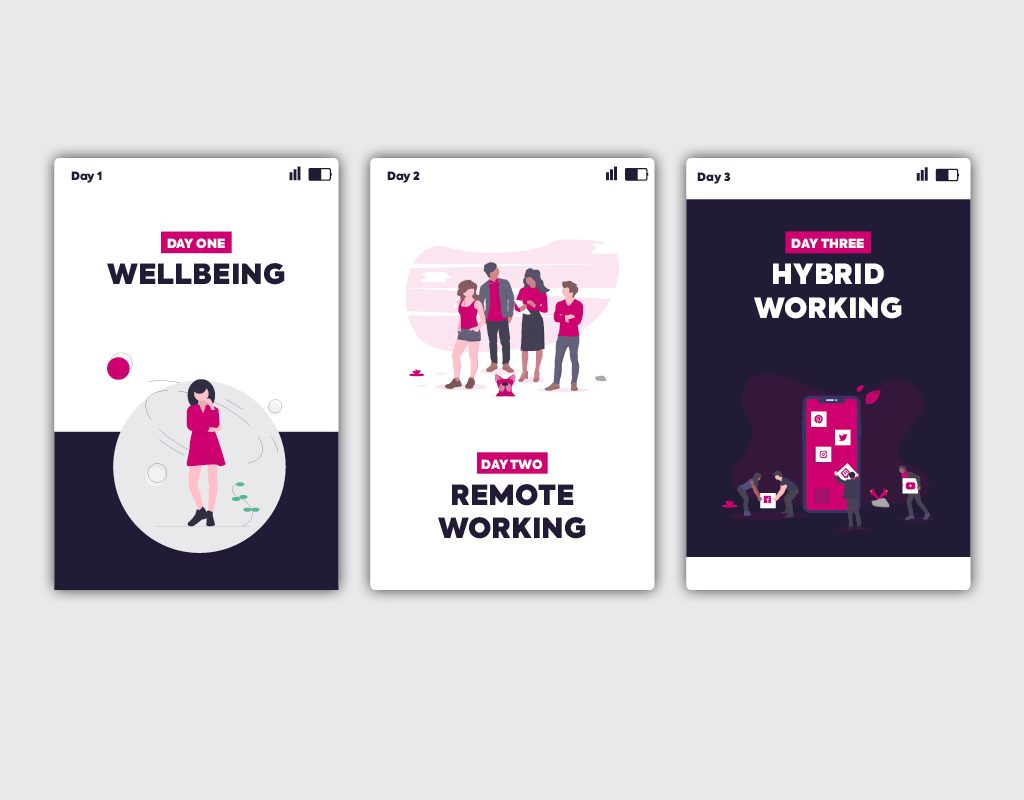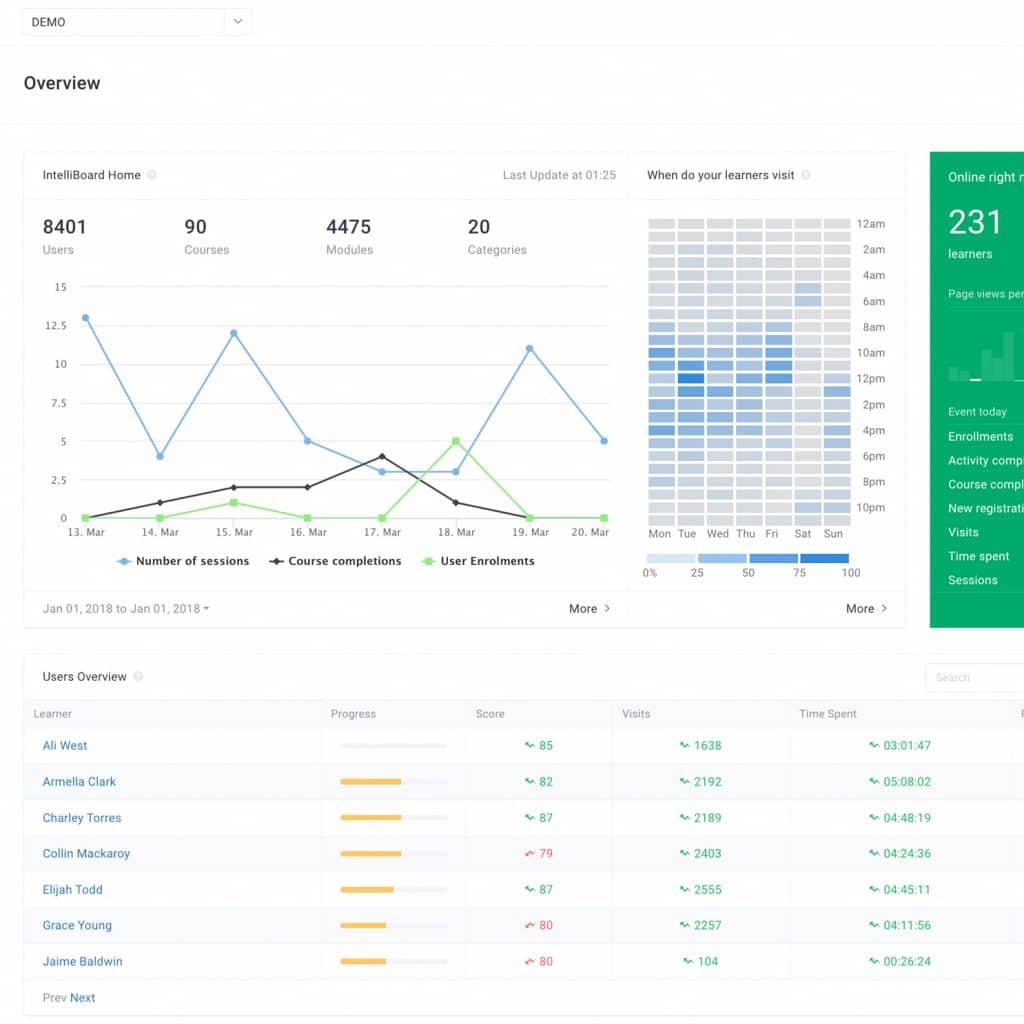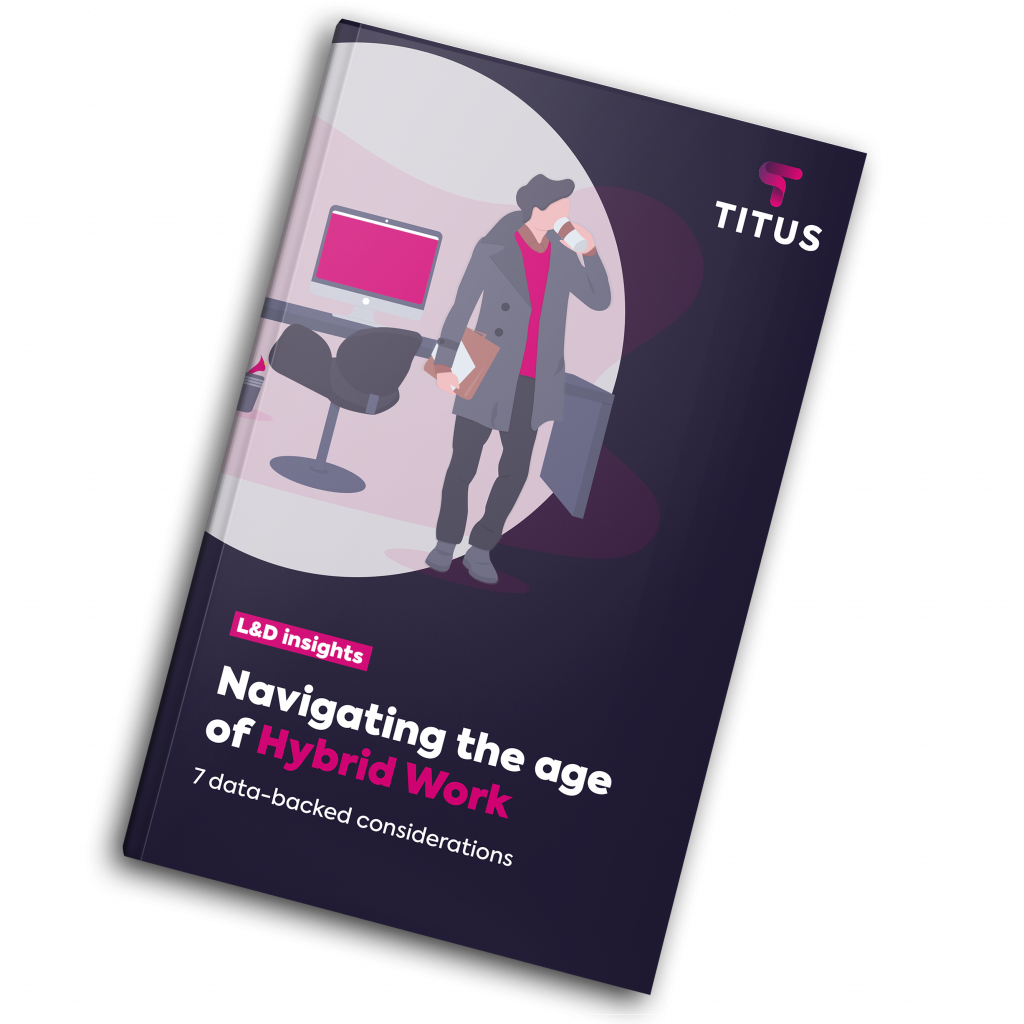- Home
- Our Solutions
Titus Services
Unlock Moodle's Potential with Titus
Migrate to Titus and transform how you use Moodle in your organisation. - Industries
- Our Work
- About
- Blog


As recently as 2020 it would have been hard for most organisations, especially outside the tech sphere, to imagine moving to a hybrid working model.
The main reason that so many businesses were able to implement remote working policies so effectively during the pandemic, and are looking to continue with hybrid working from 2021 onwards is having access to the right technology.
We’ve had a look at some of the main areas where technology is facilitating and enhancing hybrid working, and offered some pointers on how to make it work for you.

Ensuring that all employees, remote, office-based or flexible, have access to the same opportunities for learning and development is vital to making a hybrid model work. Learning management systems, such as Moodle Workplace, provide a central hub for distributing resources, conducting assessments, managing certifications and tracking achievements.
Beyond L&D itself, the company learning platform is also ideal for remote or hybrid management of the onboarding/training process, upskilling and reskilling staff, and ensuring compliance and continuity.
02 Communication
Keeping in touch with staff working across various locations is an obvious challenge for hybrid workplaces. With a range of options at your disposal, it’s important to choose the right tool for the job to ensure effectiveness, avoid disruption and maintain inclusion.
The choice will depend on your individual circumstances, but it’s always good to think twice about the purpose of any communication before
For example, before scheduling an in-person meeting, consider whether a group email or Zoom call might work just as well. Or, before sending that feedback email, think about whether a face-to-face chat next time the colleague is on-site would be more appropriate.
03 Scheduling
The ability to communicate instantly with colleagues across the globe is great for fostering collaboration and teamwork. However, it’s important to minimise disruption. In the office, it’s easier to judge whether a colleague is free for a chat or deep in focus just by reading their body language. Remote workers can sometimes suffer, as they may be perceived as being “always available” – and a constant influx of messages or requests can disrupt and delay their work.
Rather than reaching for the “call” button, it’s healthier to schedule contact time via a calendar app such as Outlook or Google. Whether it’s for a formal meeting or a quick 5-minute catch-up, it’s important to offer an appropriate amount of notice, and allow colleagues to keep control of their schedules.
04 Reporting and analysis

The ever-increasing mountain of data created by businesses on a daily basis is an invaluable asset if it can be properly reviewed and analysed. Reporting and analysis is particularly important in hybrid workplaces, where staff are often working remotely, not in terms of surveillance, but to allow managers to monitor the workloads, development and wellbeing of their staff.
The advent of machine learning and AI-powered tools means that generating useful insights from large datasets is no longer the preserve of data scientists – today’s applications use rich visual dashboards and automated pattern recognition to draw out the most useful and meaningful stats from the background data, allowing non-technical users to base their decision making on solid evidence.
The new world of flexible and remote working sounds like a dream, but isn’t without its challenges. Grab your copy of our free guide to deciphering what hybrid working really means for your organisation.


Privacy Policy | Cookie Policy | Data Protection Policy | Equality, Diversity and Inclusion Policy
© 2023 Titus Learning LTD | Company Number 08799881 | VAT Number 1813 09027
Super talented, unflappable and very funny, Phuong supports the whole marketing team in her role as Digital Marketing Executive. Phuong holds a bachelor’s degree in Business Administration and recently completed a master’s degree in Management and Marketing. Originally from Hanoi in Vietnam, Phuong is now based in the UK and climatising brilliantly to our weather and food.
Phuong owns a food review Instagram page as travelling and food are her passion. She also has a cute little french bulldog.
Ellie was the first woman to join Titus and has paved the way for many more since then. After studying for a degree in Fashion and Marketing, Ellie was lucky to find herself at fashion weeks and photoshoots.
Now she’s switched from talk of the front row to front end design and has brought loads of transferable knowledge to Titus. Ellie has also found a real passion for tech, especially in the learning sector, helping clients create positive change for their organisations.
As one of the youngest people at Titus but at the same time one of the oldest serving members of the team, Callum has graced Titus with his broad smile and positive attitude for over 5 years now. As a key member of the marketing team, Callum works across all areas, both on and offline, to ensure that all Titus brands and communication are on point.
After missing out on the opportunity to go to University the first time around, management encouraged him to enrol in our course alongside his work. He is now studying to achieve his Level 6 Diploma in Professional Digital Marketing.
Always bringing innovation and new ideas, Dec studied a degree in Journalism but found his passion in digital marketing. Dec has also worked in marketing for one of the countries biggest retailers and within the property sector.
Outside work, Dec Co-founded a news publication where he collaborated with global brands like Uber, Amazon, BooHoo and countless SMEs.